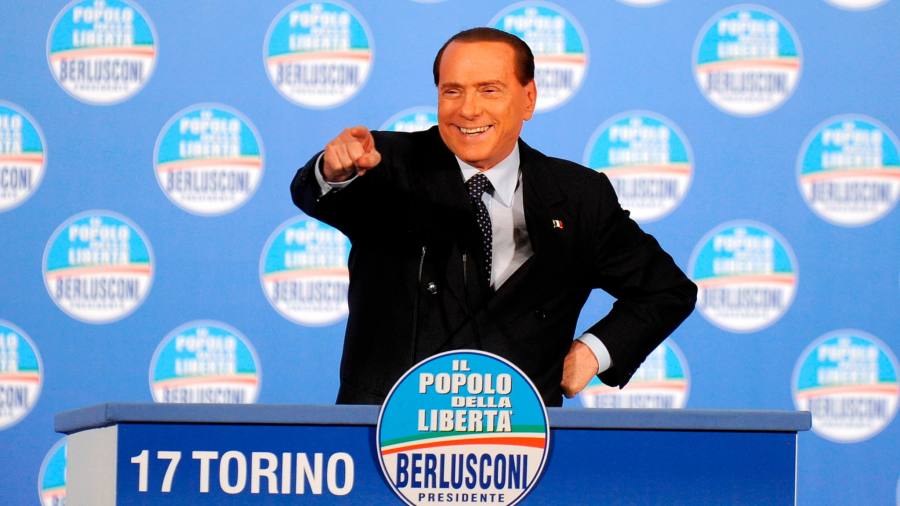Italy’s former prime minister Silvio Berlusconi, the billionaire media magnate turned trailblazing populist, has died aged 86, marking the end of a controversial career that transformed the country’s politics.
As Italy’s longest-serving postwar prime minister, Berlusconi led the nation in stints totalling almost a decade and marked by criminal investigations into his business affairs and sex scandals.
Even towards the end of his life, he was an active player in Italian politics, playing a key role in the political crisis that brought down former prime minister Mario Draghi’s government last summer, and then joining Giorgia Meloni’s ruling coalition.
His death comes months after it was revealed that he had been battling leukaemia, He spent more than six weeks in hospital from early April before returning on Friday.
His passing raises questions about the division of power within Meloni’s rightwing coalition, as well as the future of his Forza Italia party, given his lack of a clear political successor.
Berlusconi began his career as a real estate developer before moving into broadcasting in the 1970s, building a monopoly in private television.
He moved into electoral politics in 1994 at the age of 57, by which time he was well known as the wisecracking owner of a powerful entertainment empire — and Italy’s richest man.
Berlusconi shaped Italian politics in the 1990s and early 2000s with the rightwing Forza Italia, which he built using his personal fortune and the apparatus of his vast entertainment empire.
His style of politics provided a template for other populist politicians, including former US president Donald Trump and Thailand’s former prime minister Thaksin Shinawatra.
“He Americanised Italian politics,” said Roberto D’Alimonte, a political-science professor at Luiss university in Rome. “He used marketing techniques to sell his product across ideological borders.”
Berlusconi’s years in power were overshadowed by numerous criminal investigations into allegations of wrongdoing, which ranged from false accounting to bribery and illegal political funding.
His “bunga-bunga” sex parties, and prosecution on charges of paying for sex with a teenage belly dancer, also tarnished his final term, despite his eventual acquittal.
Berlusconi was ousted from power for the last time at the height of the eurozone sovereign debt crisis, when markets and European partners saw the by-then discredited leader as a liability who was unable to restore market confidence.
Yet even as Berlusconi’s personal brand diminished, his political legacy endured in Meloni’s rightwing coalition, whose three constituent parties he first brought together.
“He is the man who unified the Italian right, made it acceptable and competitive,” said D’Alimonte. “This is his historic legacy.”
Read the full article here




